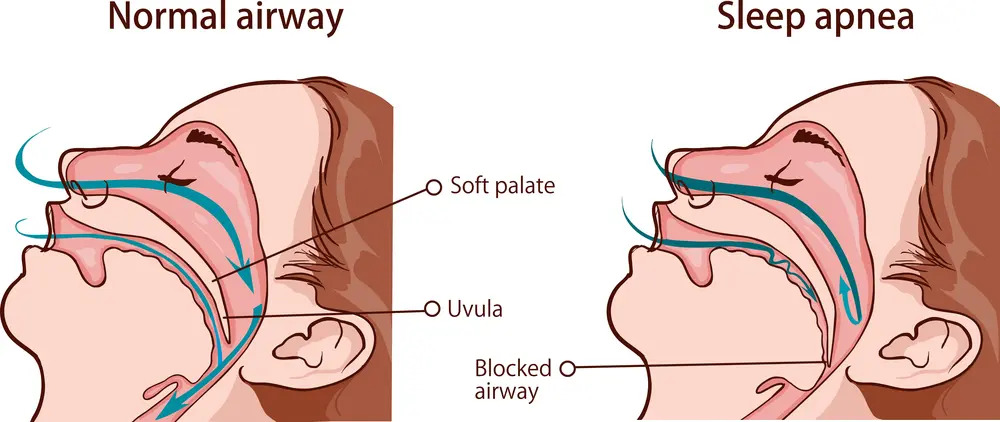Sleep apnea, a condition characterized by interrupted breathing during sleep, affects millions of people worldwide. While continuous positive airway pressure (CPAP) machines are a common treatment, there’s a growing interest in exploring natural alternatives. One intriguing question that surfaces is whether weight loss can serve as a cure for sleep apnea. In this article, we’ll delve into the relationship between weight loss and sleep apnea and explore whether shedding those extra pounds can truly be a game-changer in managing this sleep disorder.
Can i cure sleep apnea with weight loss

Understanding Sleep Apnea:
Before we tackle the weight loss aspect, let’s briefly understand what sleep apnea entails. Sleep apnea is often associated with excess weight, but it’s not solely a weight-related issue. It occurs when the muscles at the back of the throat relax excessively, leading to partial or complete blockage of the airway. This obstruction results in breathing pauses that can last for a few seconds to minutes, disrupting sleep patterns and causing a myriad of health issues.
The Weight-Sleep Apnea Connection:
Research indicates a clear correlation between excess weight and sleep apnea. Individuals carrying extra pounds, especially around the neck, may have additional tissue that can contribute to airway obstruction. Excess fat in the abdominal area can also affect lung function, exacerbating the condition.
Can Weight Loss Cure Sleep Apnea?
While weight loss might not be a universal cure for sleep apnea, it can indeed play a pivotal role in managing and even alleviating symptoms. Here’s how shedding pounds may positively impact sleep apnea:
- Reduced Fat Deposits: Losing weight, particularly around the neck and throat area, can decrease the likelihood of airway obstruction during sleep.
- Improved Muscle Tone: Weight loss is associated with enhanced muscle tone, including the muscles that help keep the airway open. This can contribute to better breathing patterns and reduced instances of apnea episodes.
- Enhanced Respiratory Function: Excess weight can impede lung function, making it harder for individuals with sleep apnea to breathe effectively. Weight loss can improve respiratory function, facilitating smoother breathing during sleep.
- Decreased Severity of Symptoms: Studies have shown that even a modest weight loss of 5-10% can lead to a significant reduction in the severity of sleep apnea symptoms.
- Overall Health Benefits: Beyond sleep apnea, weight loss brings a myriad of health benefits, including reduced risk of cardiovascular diseases, diabetes, and improved overall well-being.
Conclusion:
While weight loss may not be a one-size-fits-all cure for sleep apnea, it undeniably plays a crucial role in managing the condition. Adopting a healthy lifestyle, incorporating regular exercise, and making dietary changes can contribute to weight loss and, subsequently, improved sleep apnea symptoms. However, it’s essential to consult with healthcare professionals for personalized advice and a comprehensive approach to addressing sleep apnea. In the journey to better sleep and overall health, weight loss can be a powerful ally, offering hope for those seeking natural alternatives to manage sleep apnea effectively.
Related posts:
How to Get a Good Night’s Sleep
The Sleep Benefits of Microdosing LSD
Empowering Wellness: Customized Diet Plans for Cancer Patients
Breathe Easy: 5 Essential Respiratory Exercises for Healthy Lungs










Leave a Reply